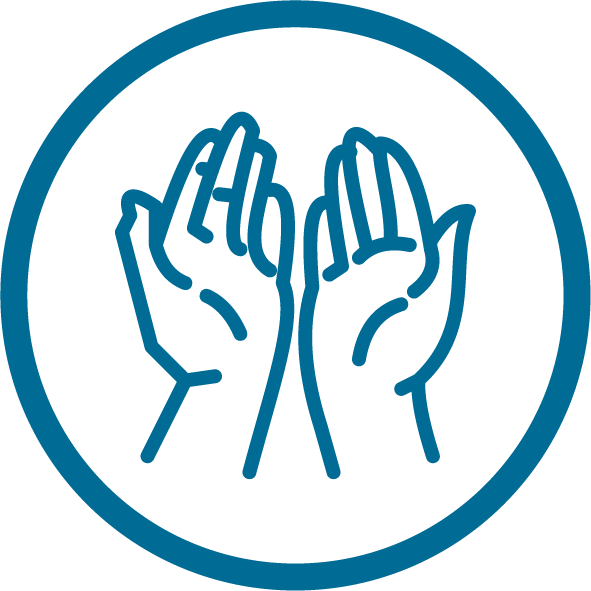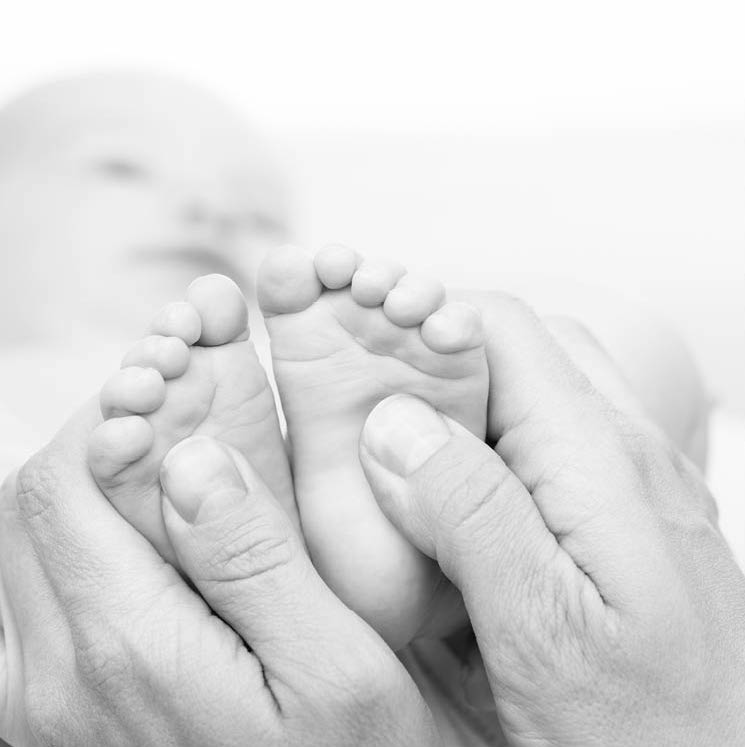Irritable Bowel Syndrome or IBS is an increasingly publicized condition. Living with IBS can be doubly challenging due to the painful physical symptoms and the fact that this condition unpredictably flares up and subsides. Vital Wellness Center’s experienced and skilled chiropractor for IBS, Dr. David Foss, has put together the following guide to educate our patients about IBS and how our chiropractic for IBS can help this condition.
What Is IBS?
IBS is a constellation of symptoms related to the digestive system. Although it doesn’t always cause visible changes in the intestinal tract, IBS can cause repeated constipation, diarrhea, abdominal pain, and other digestive symptoms.
Disorders of gut-brain interaction such as IBS highlight the need for natural irritable bowel syndrome relief. Prescription medications may provide some relief but don’t typically address the underlying cause of IBS issues. In our practice, we offer interventions that focus on strengthening the brain, spinal cord, and the rest of the neurological system. This optimizes the communication channels that relay nerve messages critical for gastrointestinal health.
Since IBS is a flaring condition, the bowels adequately function sometimes. The rest of the time, an individual with IBS can experience problematic symptoms. If most of the symptoms are constipation, they are diagnosed with IBS with constipation or IBS-C. A diarrhea-predominant form of IBS is known as IBS with diarrhea or IBS-D. Sometimes, a patient has both constipation and diarrhea. This is called IBS with mixed bowel habits or IBS-M.
Who Does IBS Affect?
Recent statistics reveal that approximately 12% of Americans have IBS. Since constipation and other digestive disorders typically become more common with age, it can be easy to assume this would be the case for IBS when the opposite is true. Most individuals who develop IBS are younger than age 50.
Women have IBS as much as twice as often as men. Other factors often linked with IBS include a family history of the condition, previous severe gastrointestinal infection, or painful life events during childhood such as abuse.
Common Symptoms of IBS
While abdominal pain, constipation, and diarrhea are the cardinal symptoms of IBS, they aren’t the only symptoms patients have reported to us. There are many other symptoms, including white mucus mixed with stool, a sensation of incomplete emptying after a bowel movement, or bloating.
IBS is a chronic disorder marked by unpredictable periods of symptom flare-ups and relatively normal bowel function. Many women also report worsening symptoms during menstruation.
How Our Chiropractic Helps Improve IBS
The chiropractic for IBS interventions we offer here at Vital Wellness Center gives our patients natural IBS relief. While the pharmaceutical industry has millions of dollars in pills available to help mask IBS symptoms, we focus on finding and correcting any underlying issues responsible for the symptoms.
Chiropractic Adjustment for IBS Symptom Relief
Scientists now believe that IBS is a functional gastrointestinal disorder in which there are issues in how the brain and gut communicate with one another. This can cause stool to move too slowly or too quickly through the intestines, causing constipation or diarrhea. Such inadequate brain-gut communication can also cause the abdomen to feel painfully full even though only average amounts of gas and stool are in the intestines.
Chiropractic adjustments are designed to correct what we call a spinal subluxation. Subluxation is the scientific term for misalignment. When the spine is misaligned, the vertebrae or spinal bones can physically rest on or compress nerves. This can cause dysfunction anywhere in the body, including the gastrointestinal tract.
When we perform a chiropractic adjustment to correct a subluxation, we restore healthy communication between the brain and the intestinal tract. As a result, the brain receives correct information from the small and large intestines, so fullness, pain, and other sensations are felt accurately. The intestines receive signals from the brain to move material through at a healthy pace that gets the most nutrition from food.
Dietary Designs for Healthier Living
The gastrointestinal tract is a major component of the body’s processing center for food. As a result, your diet plays a significant role in helping relieve IBS symptoms. Some of our recommendations often include eating more fiber, avoiding gluten, and considering a low FODMAP diet.
Boost Fiber Intake
Constipation is one of the significant digestive complaints associated with IBS. Fiber softens stool, making it easier to pass. The federal government recommends that American adults consume between 22 and 34 grams of daily fiber.
Although there are two types of fiber, soluble and insoluble, research has found that soluble fiber provides more relief for IBS symptoms. Some good sources of soluble fiber include oats, fruit, and beans.
Rapidly increasing fiber consumption can cause excess gas, bloating, and other IBS symptoms. Therefore, we recommend our patients add only 2 to 30 grams of fiber to their diet each day. This is roughly the amount of soluble fiber in an orange, ½ cup of Brussels sprouts, or ½ cup of cooked kidney beans.
Eliminate Gluten
Gluten is a protein that is a component of rye, barley, and wheat that can bring on IBS symptoms. A gluten-free diet is often prescribed for individuals with celiac disease, a condition in which the body can’t digest gluten. Although celiac disease and IBS are two different conditions, gluten can bring on IBS symptoms. Therefore, following a diet that avoids most grains, cereals, and pasta also makes sense for individuals with IBS. Since processed foods often contain gluten, individuals with IBS should also remove them from the diet.
Follow a Low FODMAP Diet
A Low FODMAP diet reduces or eliminates many hard-to-digest carbohydrates. Some FODMAP-rich foods that our chiropractor for IBS recommends individuals with IBS avoid include:
- Fresh, canned, frozen, or dried apples, cherries, watermelon, and other fruit or their juices
- Fresh, canned, or frozen beans, cabbage, onions, and other vegetables
- Rye or wheat
- High-fructose corn syrup or honey
- Milk, soft cheese, yogurt, or other dairy products
A Symptom-Reducing Lifestyle
In addition to diet, some simple lifestyle changes can help reduce IBS flares or make symptoms more manageable. Exercise is our most recommended lifestyle change. The body was designed to move, and circulation, breathing, and digestion all work better when consistent physical activity is a part of each day.
Here at Vital Wellness Center, we also love to teach our patients stress management skills. Breathing deeply, meditation, and progressively relaxing major muscle groups are all ways to reduce stress. Since stress often aggravates IBS symptoms, reducing stress levels can enhance coping with IBS symptoms.
Getting enough sleep makes everything feel better, including IBS symptoms. During sleep, our bodies rest, rebuild and rejuvenate. Skip sleep and skip all the benefits of a solid night of shuteye.
Rebalancing the Microbiota for Optimal Gut Health
Probiotics have been rather popular for many years. These live microorganisms normally live inside the intestinal tract. When they are killed by antibiotic medications, infections, or other assaults, digestion isn’t as complete or efficient.
We often prescribe Vital Nutrients, which include supplemental probiotics for our patients with IBS. Many of our patients find them useful for irritable bowel syndrome relief since they help the gut digest more effectively. Since each patient has different symptoms with different causes, we recommend our patients speak to us before beginning probiotic therapy.
When to Visit Vital Wellness Center’s Chiropractor for IBS
The best time to visit Dr. Foss, our chiropractor for IBS, is always right away. The sooner a patient can receive care, the sooner they can experience results like those discovered through research.
One recent study involved a 32-year-old woman with IBS, anxiety, and depression. She had unrelenting symptoms at all hours of the day. Once she came in for an initial appointment, she could have a regular bowel movement without pain. Within a few weeks of beginning care, her physical symptoms vanished, and her anxiety and depression were significantly milder.
If the thought of natural IBS relief intrigues you, or you’ve been frustrated over the care a family member has received, please consider giving us a call. We’ll be glad to answer any questions you have and schedule an appointment for natural irritable bowel syndrome relief.
Other Services





















